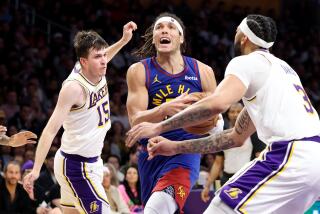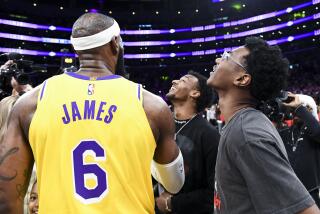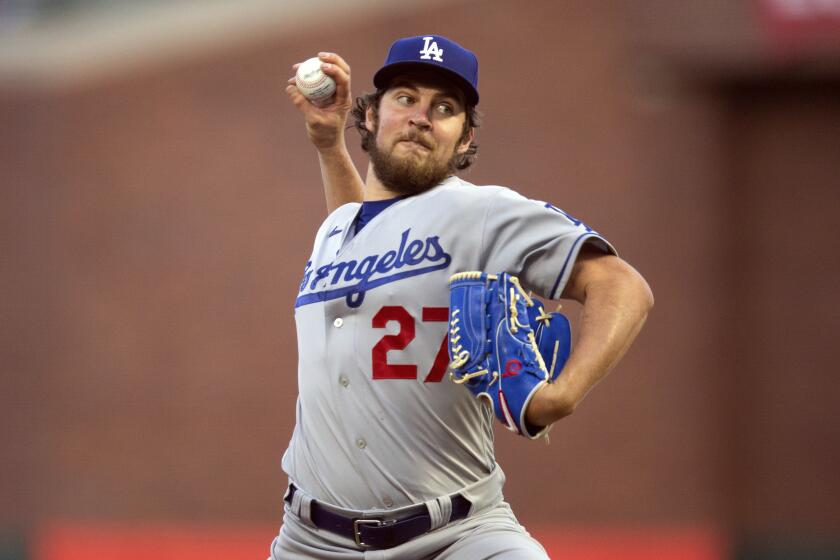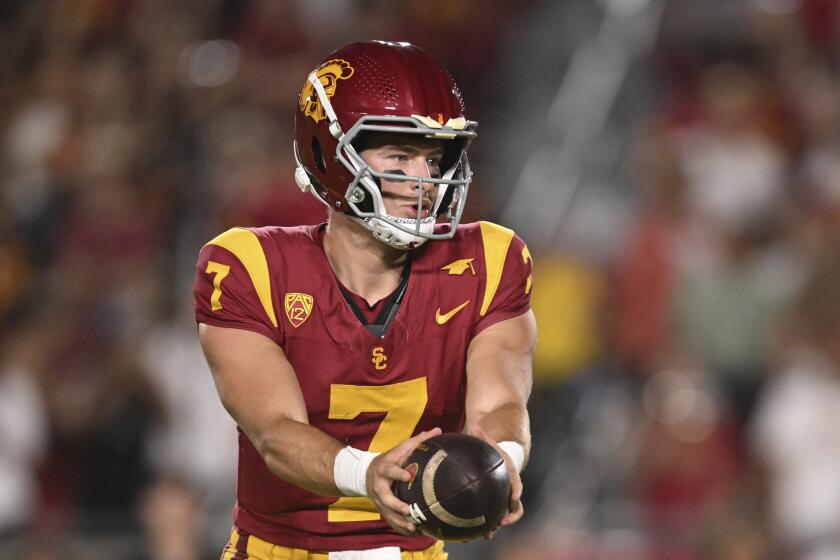Tribune may throw MLB a curveball
With Major League Baseball entering the final two weeks of the regular season, the bidding for the Chicago Cubs is about to move into the hardball stage.
Tribune Co. announced in May that it would sell the marquee franchise after the current season as part of its privatization deal with Chicago real estate mogul Sam Zell. Estimates of the value of the team, its historic home at Wrigley Field and Tribune’s 25% share of Comcast SportsNet, a regional cable TV network, have rocketed to $1 billion and beyond.
The Cubs, after all, are among the biggest draws in the major leagues. About 3.1 million fans flooded into Wrigley last year, keeping the stadium 93% filled despite the team’s poor on-field performance. The Cubs finished in last place in the National League’s Central Division, although they’ve come back this year and held on to first place by a slim margin going into Friday night’s game with the St. Louis Cardinals.
But Tribune, which also owns The Times, is now pondering whether it might get more money by selling the pieces separately, according to people close to the Tribune transaction. Among other things, that would limit Commissioner Bud Selig’s influence over the deal because Major League Baseball’s authority extends only to the team itself. Selig has been accused of steering previous franchise sales toward bidders he favors, even when higher offers have been on the table, and he may have a strong preference this time.
A piecemeal transaction would also make the sale more complicated and probably push the timeline for its completion past the end of this year. And the league says it would represent a change of signals from Tribune.
“They’ve told us they’re going to package them together,” Selig said in an interview.
Sports-marketing experts generally believe that, in the end, a single deal will be made. But a Tribune source said the offering document provided to the league didn’t commit the company to any specific combination.
Zell would have veto power over major transactions once he becomes Tribune’s chairman if and when the deal is completed, possibly around the end of this year. Yet even now Zell, who holds one of the seven seats on the Tribune board, has a significant voice in corporate matters and wouldn’t take kindly to being strong-armed into accepting less than the highest bid.
The Cubs deal may develop into an unusual public spectacle. Unlike most franchise sales, which involve groups of private individuals as buyers and sellers, this one involves a public corporation that has a fiduciary duty to obtain the best return for shareholders by accepting the highest offer, regardless of the bidder’s identity.
On the other hand, as a group of private franchise owners engaged in a joint undertaking, Major League Baseball has a clear interest in approving sales only to buyers with whom the owners are comfortable -- not necessarily the highest bidders. The transfer of any franchise requires the approval of 23 of the 30 team owners.
“You’re asking to be a member of a club, and the club has a right to say no, a former MLB executive said. “So this pits the principle of fiduciary responsibility against the right to belong to a club. The odds are it’s going to be a long, drawn-out process.”
The last time those principles were in such stark conflict was 2001, when the sellers of the Boston Red Sox accepted a $700-million bid from a group headed by baseball insider John Henry over two higher bids, including a $790-million offer from cable mogul Charles Dolan. The team and the league justified the outcome by arguing that the Henry group had a better chance of winning prompt league approval and the expected delay in the league’s scrutiny of Dolan’s bid would be costly to the sellers.
Still, the gap was so wide that Massachusetts Atty. Gen. Thomas F. Reilly threatened to block the sale on the grounds that it shortchanged the team’s majority owner, a group of charitable trusts. After Reilly accused the league of “calling the shots” on the deal, it was restructured to give the trusts a larger share of the proceeds.
In the case of the Cubs, the suitor with the putative inside track because of its link to Selig is a group of Chicago businessmen led by John A. Canning Jr., chairman of the private equity firm Madison Dearborn Partners. Canning holds a part-interest in the Milwaukee Brewers, of which Selig was formerly the principal owner; he would have to divest that interest to acquire the Cubs. His group reportedly includes Andrew McKenna, the chairman of Chicago-based McDonald’s Corp. and a former Cubs chairman.
Among the other interested parties is dot-com billionaire Mark Cuban, the owner of the National Basketball Assn.’s Dallas Mavericks. Many baseball owners would probably rank Cuban the least palatable bidder, largely because of his running conflict with NBA Commissioner David Stern. The commissioner has fined Cuban more than $1.4 million in the seven years he has owned the team, mostly for his public criticism of league policies and officials.
Tribune sources say there are at least half a dozen other candidates with strong business and financial credentials. They declined to name them all, but the list is known to include a group associated with J. Joseph Ricketts, the Omaha-based founder of discount brokerage TD Ameritrade.
Cuban declined to comment on the sale process. Canning and Ricketts did not respond to requests for comment.
In an interview this week, Selig disputed suggestions that he was trying to steer the bidding toward Canning or that the league would move faster on a Canning bid than any other.
“None of that is true,” he said. “We would take a look at any bid. Nobody will get faster approval than any other guy.”
As for the Red Sox sale, he acknowledged that the John Henry group’s connections with the league “played a role” in the deliberations. Henry owned the Florida Marlins at the time, his partner Tom Werner had been an owner of the San Diego Padres and a third principal, Larry Lucchino, had been president of the Padres and the Baltimore Orioles.
“In the Boston situation, the people were in baseball and they were highly regarded,” he said. “Did [that] play a primary role? No. But it’s helpful when you know somebody.”
Under Zell’s influence, Tribune may be signaling that it would not be willing -- or couldn’t afford -- to accept a similar underbid.
“Notwithstanding Major League Baseball’s desire to be in business with John Canning,” a person close to the transaction said, “he’s got to pay what the asset is worth.”
Conventional wisdom holds that Tribune is under pressure to complete a Cubs sale quickly, preferably before New Year’s. A quick transaction clearing several hundred million dollars would help alleviate the $12-billion debt burden of the Zell deal. Tribune’s first-round financing includes a requirement that $750 million of the principal be paid down within 18 months, and another $750 million six months after that.
Moreover, any asset sales completed after Tribune is taken private would incur costly tax penalties because of the structure employed.
Tribune sources say some potential buyers may believe they can exploit the apparent urgency by offering a speedy closing in exchange for a price break. But they say they would pay down the principal from other sources of cash if they could get more for the Cubs by waiting. The tax liabilities conceivably could be worked around by tweaking the corporate structure to leave the Cubs in a tax-paying affiliate even as the rest of the company goes private.
“There are buyers who would like to pick this asset off while we’re doing the larger transaction,” a Tribune source said. “But we don’t have a gun to our head.”
For the record, Tribune stands by its original timeline. “We’ve said we hope to have the sale completed by year-end,” said spokesman Gary Weitman.
The Cubs sale involves four related pieces. In addition to the team, Wrigley Field and the stake in Comcast SportsNet Chicago, Tribune also owns several parcels of land in the stadium neighborhood currently devoted to parking, food-service warehousing and other low-return uses. The 25% interest in Comcast SportsNet might have sizable stand-alone value. Regional sports networks have soared in value in recent years, matching or exceeding the worth of their related teams in many cities.
As much as half of the Red Sox price may have represented the franchise’s 80% ownership of New England Sports Network, a cable channel that carried Red Sox games. NESN had recently been shifted from the premium-pay tier to the basic package of local cable systems, a move that increased its potential subscription base nearly sevenfold.
It is also possible that Tribune under Zell might choose to upgrade Wrigley Field before selling to make it more appealing -- much as a homeowner upgrades a kitchen or paints a house to make it more presentable on the block.
“It’s a great time to own the asset,” a person close to the transaction said. “But that doesn’t mean we should let someone else do five or 10 things to the asset that we could do to maximize its value.”
--
bill.shaikin@latimes.com
More to Read
Get our high school sports newsletter
Prep Rally is devoted to the SoCal high school sports experience, bringing you scores, stories and a behind-the-scenes look at what makes prep sports so popular.
You may occasionally receive promotional content from the Los Angeles Times.







